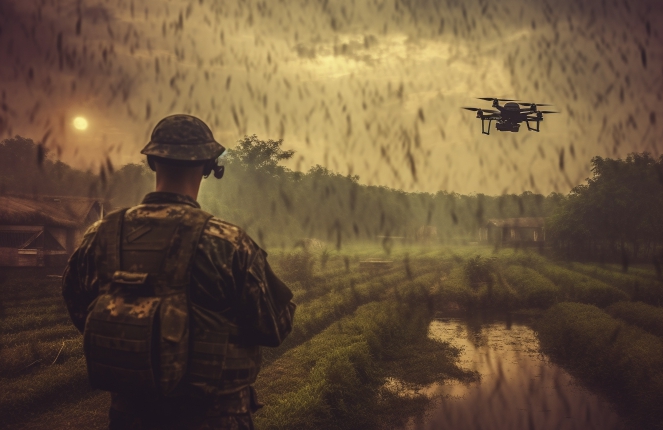Tech Leaders from Meta, OpenAI Enlist in U.S. Army's New Innovation Unit
Silicon Valley's brightest minds are trading boardrooms for barracks as they enlist in a groundbreaking military initiative. Shyam Sankar (Palantir's CTO), Andrew "Boz" Bosworth (Meta's CTO), along with Kevin Weil and Bob McGrew from OpenAI have joined the U.S. Army Reserve's newly formed Task Force 201 - an innovation brigade designed to bridge the gap between cutting-edge technology and military applications.

Image source note: Image generated by AI, licensed by MidJourney service provider.
Bosworth revealed his decision stems from both family military tradition and encouragement from Meta CEO Mark Zuckerberg. "This isn't about leaving tech behind," Bosworth explained, "but about bringing our best tools to those who defend our nation." The move signals a significant thaw in Silicon Valley's historically cautious relationship with defense agencies.
The unit takes its name from HTTP status code 201 - the digital signal for "resource created." Members will serve approximately 120 annual hours while maintaining their civilian positions, focusing on three critical areas:
- AI integration for battlefield decision-making
- Soldier training systems for emerging technologies
- Health data management improvements
General Randy George, U.S. Army Chief of Staff, emphasized the urgency: "Future conflicts won't wait for us to catch up. We need ground robots, drone swarms, and AI-assisted logistics yesterday." The partnership aims to accelerate deployment of these systems while addressing ethical considerations that previously caused tech firms hesitation.
Before donning uniforms, executives must complete rigorous physical tests - a challenge several acknowledged might prove tougher than debugging complex algorithms. "I can code in three languages," joked one recruit, "but running two miles is its own kind of syntax error."
The initiative represents more than temporary consulting. Task Force 201 members will undergo full officer training while developing long-term technology roadmaps. Their work could reshape everything from battlefield communications to predictive maintenance for military hardware.
Key Points
- Elite tech executives form Task Force 201 to modernize U.S. military technology through reserve service
- Initiative marks unprecedented collaboration between Silicon Valley and Pentagon on AI integration
- Participants balance civilian careers with 120 annual service hours focused on defense innovation
- Physical readiness requirements present unique challenge for tech professionals
- Program aims to fast-track deployment of drones, robotics, and AI systems in combat scenarios
